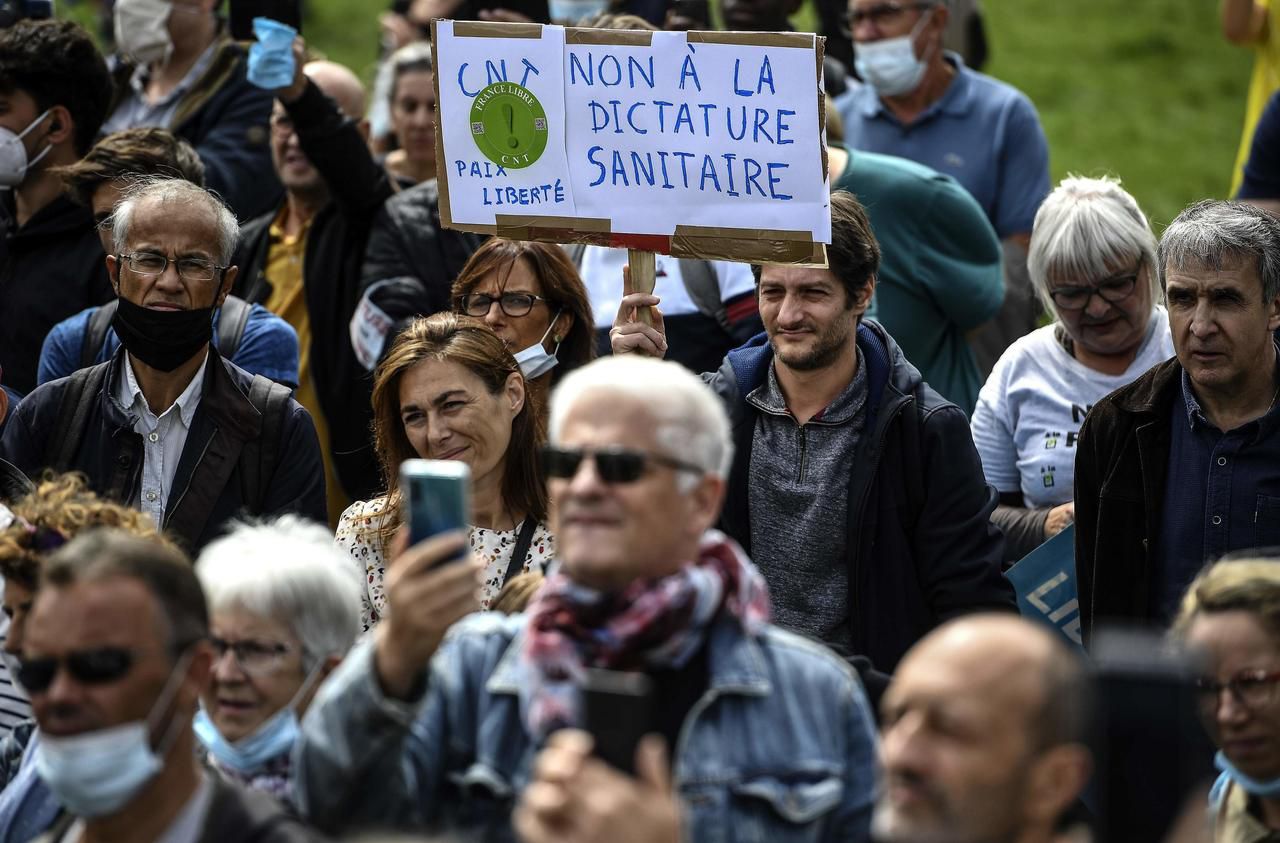The movement against the wearing of compulsory masks to fight the coronavirus is gaining momentum around the world.
In France, if the number of anti-masks seems to swell via the distorting magnifying glass of social networks, outside, despite some attempts to emerge, the movement is struggling to take shape.
During their first demonstration, last Saturday in Paris, only nearly 300 people gathered at the Place de la Nation.
A very low figure compared to the gatherings observed for several weeks in some of our European neighbors.
In England, when there were a few hundred anti-masks in France, there were more than a thousand in London.
In Germany, where the authorities counted up to 30,000 demonstrators on Saturday, the movement even seems to be radicalizing.
About a hundred of them tried to force their way into the Reichstag building.
Are such gatherings and such acts possible in France?
Jocelyn Raude, social psychologist and specialist in emerging infectious diseases at the School of Advanced Studies in Public Health, doubts.
Why is the number of anti-masks largely in the minority in France?
JOCELYN RAUDE.
The relationship with masks in France is a bit different from that observed in other countries.
At the start of the pandemic, the government spoke against the mask, saying that it was unnecessary and that its use should be reserved for healthcare workers.
The population never believed this message.
In fact, a public opinion very favorable to the mask set in early in France.
According to our surveys, a large majority of French people believed that masks were a strategic tool in the fight against the pandemic.
Newsletter - Most of the news
Every morning, the news seen by Le Parisien
I'm registering
Your email address is collected by Le Parisien to enable you to receive our news and commercial offers.
Learn more
VIDEO. Covid-19: anti-mask demonstrators gathered in Paris, the police verbalize
The use of masks quickly became widespread among the population before it became a political issue.
Everything is happening as if the government were accompanying an opinion which is already well established in the minds of the French.
Why is the movement unable to mobilize more in France?
Because it is, for the moment, an ultra-minority and heterogeneous movement.
It is not structured or organized around charismatic figures, who are sufficiently recognized as being "good clients" of the media.
To date, we have not seen any leader emerge behind this movement who can strengthen its legitimacy.
What does the French movement currently represent?
For the moment, we mainly observe micro-mobilizations.
I personally doubt the ability of this movement to gain momentum in France given the number of subscribers on the social networks of the groups that manage the mobilizations.
In fact, last Saturday's demonstration was extremely small with only 200 to 300 people ...
This does not mean that the protest cannot increase.
For example, it suffices for a future scientific study to demonstrate the ineffectiveness of wearing a mask in public places to mobilize a greater number of people around these demands.
Could the movement therefore take on a scale equivalent to that observed in Germany?
I don't think so, insofar as this movement appears to be poorly organized and structured in France.
In the surveys, the French seem to be waiting for more “strong” measures rather than less… But it is very difficult to predict its evolution, because the yellow vests were also a very unstructured movement at the beginning!
Do the anti-mask protests in France and Germany share the same demands?
Yes.
We find the same type of arguments from one country to another, although it should be noted that the mobilization is much stronger across the Rhine.
These are very heterogeneous movements composed in particular of people close to the extreme right, conspiracy groups, or libertarian movements.
These movements are united in their opposition to the mask, even if they do not necessarily share the same ideological orientations.
How to explain such a gap between the number of people in the demonstrations in Germany and those in France?
What may have played in favor of the mask in France is paradoxically that the government was initially very skeptical about its interest in the population.
From the start of the epidemic, the French appeared to be one of the populations that had the least confidence in the capacity of its institutions to manage the health crisis.
In Germany, there has been a much more proactive political discourse on the issue of the mask, but which has resulted in a stronger mobilization against health constraints ...
Are there also cultural factors that can also explain the differences in mobilization between France and Germany?
Indeed, there are cultural factors that appear behind these mobilizations and attitudes towards prevention. We can clearly see Catholic Europe and Protestant Europe. Catholic Europe reacted more authoritatively to the health crisis compared to Protestant Europe, which relies more on individual responsibility.

